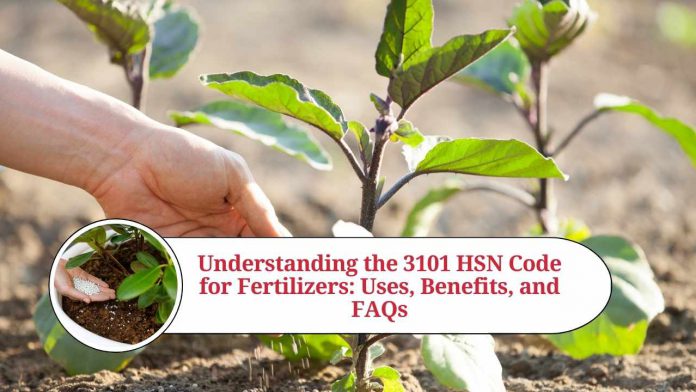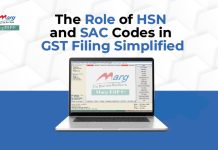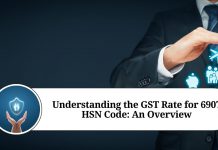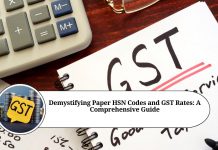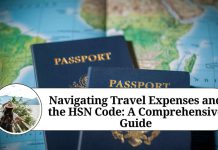Understanding the 3101 HSN Code: Definition, Products Covered, and More
The Harmonized System of Nomenclature (HSN) code is a globally recognized system used to classify and categorize goods traded internationally. The HSN code for each product or commodity is a six-digit code that is used to determine the customs duty and other taxes applicable to that product. In this blog, we will discuss the 3101 HSN code in detail, including its definition, products covered, and more.
Definition of 3101 HSN Code
The 3101 HSN code falls under Chapter 31 of the HSN, which covers fertilizer products. Specifically, the 3101 HSN code refers to goods classified as “Animal or vegetable fertilizers, whether or not mixed together or chemically treated; fertilizers produced by the mixing or chemical treatment of animal or vegetable products.”
Products Covered by 3101 HSN Code
The products covered by the 3101 HSN code include animal or vegetable fertilizers, whether mixed together or chemically treated. This includes animal excreta, such as manure and guano, as well as vegetable matter, such as compost and crop residues.
The 3101 HSN code also covers fertilizers produced by the mixing or chemical treatment of animal or vegetable products. This includes products like bone meal, fish meal, and blood meal, which are all made from animal by-products. Other products covered by the 3101 HSN code include seaweed extract, peat, and other organic materials that can be used as fertilizers.
Importance of 3101 HSN Code
The 3101 HSN code is important because it allows customs officials to classify and categorize fertilizer products accurately. This helps to determine the customs duty and other taxes applicable to these products. The HSN code system also makes it easier for businesses to trade internationally, as they can use the same system to classify their goods regardless of the country they are trading with.
Moreover, the 3101 HSN code is relevant to farmers and other agricultural businesses who need to import or export fertilizers. By understanding the HSN code system, they can ensure that they are paying the correct customs duty and taxes on their products.
Uses and Benefits of Fertilizers under the 3101 HSN Code
Fertilizers are essential for maintaining soil fertility and ensuring that crops receive the nutrients they need to grow. The 3101 HSN code covers a wide range of fertilizers that can be used in agriculture, horticulture, and gardening. Some of the key benefits of using fertilizers under the 3101 HSN code include:
- Improved soil fertility: Fertilizers help to replenish the nutrients in soil that are essential for plant growth. This improves soil fertility and ensures that crops receive the nutrients they need to grow strong and healthy.
- Increased crop yields: By providing crops with the nutrients they need, fertilizers can help to increase crop yields. This is particularly important in areas with poor soil quality or low nutrient levels.
- Faster growth: Fertilizers can help to speed up the growth of crops, which is important in areas with short growing seasons or when farmers need to produce crops quickly.
- Improved plant health: Fertilizers can help to improve the overall health of plants, making them more resistant to pests and diseases.
- Environmental benefits: Some fertilizers under the 3101 HSN code, such as organic fertilizers, can help to reduce soil erosion, improve water retention, and promote the growth of beneficial microorganisms in the soil.
Examples of Fertilizers under the 3101 HSN Code
- Animal excreta: Animal excreta, such as cow manure, horse manure, and poultry manure, are commonly used as fertilizers. They are rich in nitrogen, phosphorus, and potassium, which are essential nutrients for plant growth.
- Compost: Compost is a type of organic fertilizer made from decomposed plant matter, such as leaves, grass clippings, and food waste. It is rich in nutrients and can help to improve soil structure and water retention.
- Fish meal: Fish meal is a type of fertilizer made from dried and ground fish. It is high in nitrogen and phosphorus, which are essential for plant growth.
- Bone meal: Bone meal is a type of fertilizer made from ground animal bones. It is high in phosphorus, which is essential for root development and overall plant growth.
Conclusion
In conclusion, the 3101 HSN code covers a range of fertilizers that are essential for maintaining soil fertility and promoting plant growth. By understanding the HSN code system, farmers and agricultural businesses can ensure that they are using the correct classification for their fertilizers, which can help to reduce the cost of importing or exporting these products. Moreover, the use of fertilizers can have significant benefits for crop yields, plant health, and the environment, making them an important tool for sustainable agriculture.
Read more useful content:
Frequently Asked Questions (FAQs)
- What does the 3101 HSN code refer to?
The 3101 HSN code refers to animal or vegetable fertilizers, whether or not mixed together or chemically treated, and fertilizers produced by the mixing or chemical treatment of animal or vegetable products.
- Why is the HSN code system important?
The HSN code system is important because it allows for accurate classification and categorization of goods traded internationally. This helps to determine the customs duty and other taxes applicable to these products and makes it easier for businesses to trade internationally.
- How do I determine the correct HSN code for my product?
To determine the correct HSN code for your product, you can use the HSN code search tool provided by your country’s customs agency or consult with a customs broker.
- Are there any exemptions or discounts on customs duty for fertilizers under the 3101 HSN code?
This depends on the country and specific regulations. Some countries may offer exemptions or discounts on customs duty for certain types of fertilizers, while others may not.
- What are some examples of organic fertilizers under the 3101 HSN code?
Examples of organic fertilizers under the 3101 HSN code include animal excreta (e.g., manure), compost, and seaweed extract.
- Are there any restrictions on the import or export of fertilizers under the 3101 HSN code?
This depends on the country and specific regulations. Some countries may have restrictions on the import or export of certain types of fertilizers, particularly if they contain hazardous materials or are considered a biosecurity risk.
- How can I ensure that I am using fertilizers safely and responsibly?
To use fertilizers safely and responsibly, you should always follow the manufacturer’s instructions, use protective clothing and equipment when handling fertilizers, and dispose of any unused or expired products properly.
- Can fertilizers under the 3101 HSN code be used in organic farming?
Yes, many fertilizers under the 3101 HSN code can be used in organic farming, particularly those made from organic materials such as animal excreta and compost.
- Are there any alternatives to chemical fertilizers under the 3101 HSN code?
Yes, there are many alternatives to chemical fertilizers under the 3101 HSN code, including organic fertilizers, biofertilizers, and green manures.
- How can I ensure that I am using fertilizers under the 3101 HSN code sustainably?
To use fertilizers under the 3101 HSN code sustainably, you should consider using organic or natural fertilizers, using fertilizers sparingly and only as needed, and incorporating crop rotation and other sustainable farming practices.

